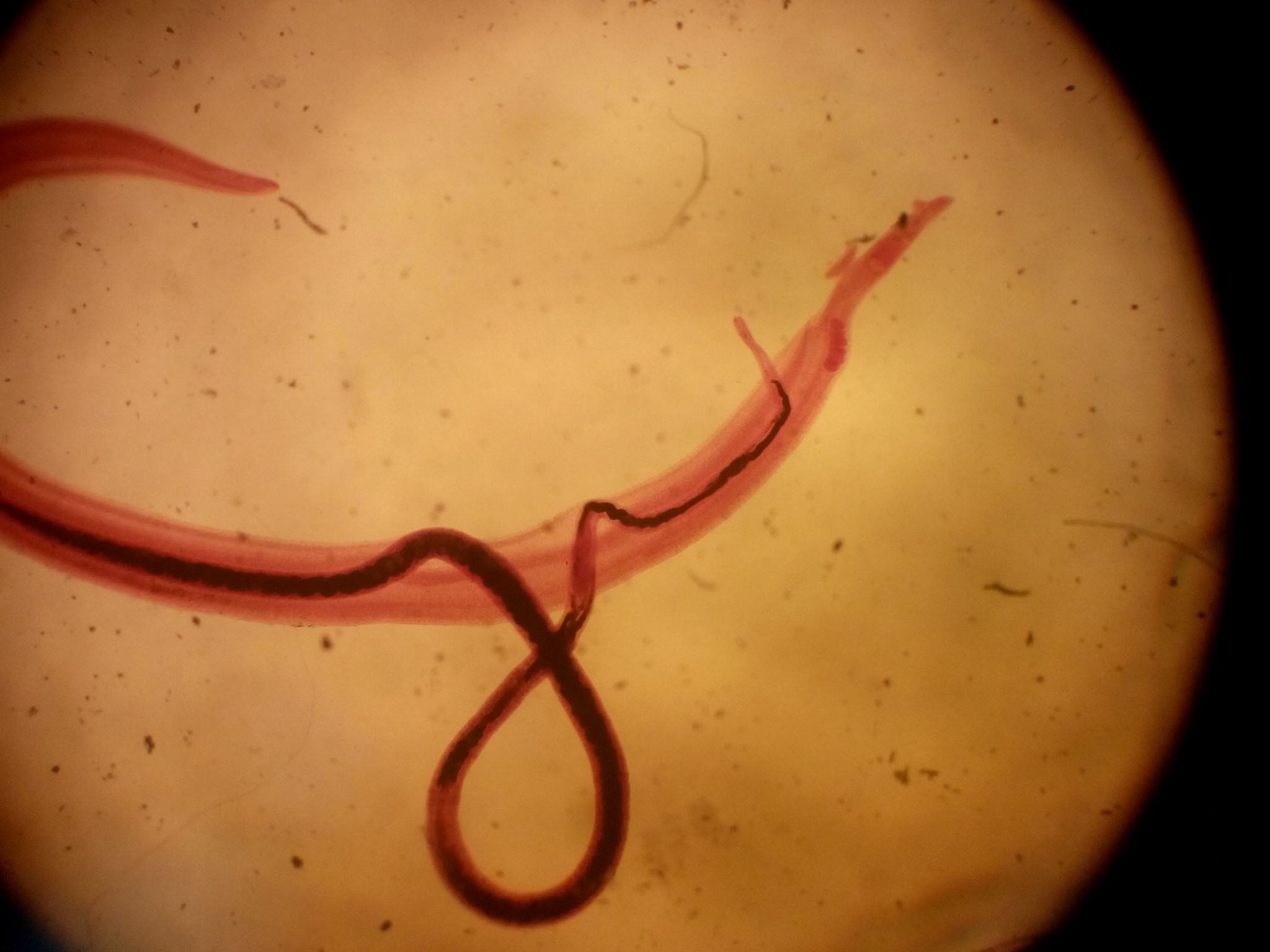Seventeen people volunteer to have potentially deadly parasitic worms injected into their bodies as part of search for vaccine
Researchers hope experiment will be step towards finding vaccine for fatal disease

A group of 17 people have volunteered to be infected with parasitic worms as part of a study into a deadly disease called Schistosomiasis.
The schistosoma mansoni parasites cause the illness which can lead to organ damage and even death, by laying eggs in the body.
The volunteers nonetheless allowed researchers to implant 20 of them into their arms.

Once the creatures settle into their bodies, researchers led by infectious disease physician Meta Roestenberg, at Leiden University Medical Center in The Netherlands, will monitor them for 12 weeks.
It is hoped the study will help with the developments of a vaccine for the disease that can cause chronic pain and affect the liver, kidneys and bladder.
Researchers hope it will show it is possible to test vaccines with this method - a faster and more affordable than field research.
The 17 volunteers will have blood taken from them each week to see if the worms are still alive. If a molecule known as CAA is found in their blood, it means they have survived.
Only male worms were used in the study as they will not not able to reproduce or lay eggs, which researchers say will mean there will be no symptoms.
After the 12 weeks are up, a drug called Praziquante will rid their body of the infection and kill any remaining worms.
Some critics have nonetheless questioned the level of risk involved and how effective the drug will be at flushing out all the worms in the end.
“I would not volunteer for this study and if I had a son or daughter who wanted to volunteer, I would recommend against it,” Daniel Colley a Schistosomiasis researcher at the University of Georgia, told Science magazine.
The experiment was nonetheless approved by a Dutch board of ethics and lead researcher Ms Roestenberg insists that the risk is extremely low .
Also known as bilharzia or snail fever, the condition is widespread in parts of Africa and South America and Asia and no vaccine currently exists.
The patristic flatworms live in fresh water, and can grow inside snail shells. They infect humans by getting inside through skin and move through the blood into organs including the liver and bowels.
They breed and lay eggs inside the body, can live inside a human for years.
Join our commenting forum
Join thought-provoking conversations, follow other Independent readers and see their replies
Comments
Bookmark popover
Removed from bookmarks